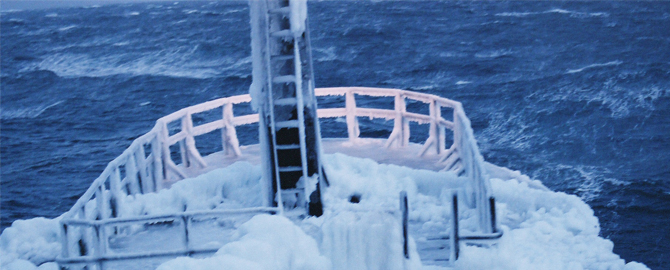The maritime industry is just like any other industry in that your maritime employer must provide reasonably safe working conditions for you to perform your job. These conditions are governed by the Coast Guard and the Occupational Safety and Health Administration (OSHA). Both organizations issue regulations for maritime workplace safety.
OSHA maritime safe workplace rules and procedures can be found in 29 CFR Part 1915, 29 CFR Part 1917, and 29 CFR Part 1918. A violation of these rules may be considered a failure to provide safe maritime working conditions, which is a form of negligence. If you suffered an injury due to an unsafe working environment aboard a vessel, an experienced maritime accident attorney can help you file your claim under the appropriate legislation and fight for maximum compensation.
Maritime Injury Attorneys for Unsafe Working Conditions in Washington, Oregon, Alaska, and California
The dedicated maritime injury attorneys of Anderson Carey Williams & Neidzwski, LLP have decades of combined experience handling maritime cases like yours. Using a strategy of perseverance, customization, and teamwork, our maritime injury lawyers will fight for maximum compensation, whether that requires a settlement or a full trial.
To find out what Anderson Carey Williams & Neidzwski, LLP can do for your unsafe maritime working condition case, call 1 (800) 262-8529 to schedule your free initial consultation. We serve clients from coast to coast and have offices in Bellingham and Seattle, WA; Portland, OR; and San Francisco, CA.
Information Center for Unsafe Maritime Working Conditions
- Unsafe Maritime Working Conditions and Unseaworthiness
- Maritime Examples of Unsafe Working Conditions
- Recoverable Damages for Maritime Injuries Sustained in Unsafe Work Conditions
Unsafe Maritime Working Conditions and Unseaworthiness
Though they are related and often go hand in hand in a maritime injury claim, the concepts of unsafe working conditions and unseaworthiness have separate applications. Unsafe working conditions can often make the vessel unseaworthy. The warranty of seaworthiness applies to vessels, vessel gear, and vessel equipment. A vessel is unseaworthy if any aspect of the ship is unfit for the purpose for which it was made and generally includes:
- Defective or damaged vessel
- Defective, damaged, and/or malfunctioning equipment
- Lack of adequate safety equipment, such as guards, handrails, life vests, and fire extinguishers
- Inadequate and/or insufficiently trained crew members
While unseaworthiness is a cause of action generally reserved for seamen, unsafe working conditions may affect longshoremen and harbor workers, as well as seaman. Unsafe working conditions may include inadequate medical supplies, poor health conditions in the galley, exhausted crewmembers, and lack of security.
The difference between unsafe working conditions and unseaworthiness may matter when it comes to filing your maritime injury claim. It is recommended you hire an experienced maritime injury attorney to guide your case through the complicated maritime civil process. The attorneys at Anderson Carey Williams & Neidzwski, LLP serve the Pacific Northwest, including the states of Washington, California, Oregon, and Alaska, and are ready to help you attain the compensation you deserve. Call 1 (800) 262-8529 today for a free, no obligations consultation.
Maritime Examples of Unsafe Working Conditions in Washington, Oregon, California, and Alaska
Without the proper safety procedures, both onshore operations and operations at sea can place maritime workers at risk. It is crucial for all maritime employers to try and prevent injury to their employees by implementing safety measures aimed at protecting workers from unsafe working conditions, such as the following:
- Defective rigging
- Defective machinery and tools
- Inadequate, or lack of, safety and protective gear
- Failure to implement evacuation procedures
- Slippery work surfaces
- Improper operation and navigation of vessel (such as going too fast for conditions)
- Steps and ladders at a steep angle and without grip strips or handrails
- Insufficient crew and/or insufficient rest hours
- Inadequate procedural and safety training of crewmembers
- Failure to conduct regular safety inspections
Any of these circumstances constitute a violation of the duty of care a maritime company owes its employees. A violation of a duty of care makes the employer negligent if they knew or should have reasonably known about the unsafe working conditions and failed to correct them. If you were injured because of a breach of duty by your employer which led to unsafe working conditions, a qualified maritime injury attorney can help you attain maximum compensation.
Recoverable Damages for Maritime Injuries Sustained in Unsafe Work Conditions
Maritime employers have a responsibility to their employees to provide reasonably safe working conditions under the circumstances, whether the employee is a merchant mariner, longshoreman, harbor worker, commercial fishermen, officer, or deckhand. If a maritime employee suffers injury shoreside or at sea due to negligent, unsafe working conditions, the employer could be responsible for paying compensation for the following damages:
- Medical expenses
- Lost wages
- Reduced or eliminated earning capacity
- Disability
- Pain and suffering
- Mental anguish
- Disfigurement
BOATLAW, LLP | Lawyers for Maritime Employees Injured in Unsafe Working Conditions
If you have suffered an injury due to unsafe working conditions caused by the negligence of your maritime employer, let the experienced maritime injury attorneys of Anderson Carey Williams & Neidzwski, LLP fight for you. With years of experience, we know what factors into a successful maritime civil case and how to appropriately pursue the damages you deserve. The attorneys at Anderson Carey Williams & Neidzwski, LLP serve the Pacific Northwest, including the states of Washington, California, Oregon, and Alaska. Your first consultation is free, so call 1-800-262-8529 to schedule yours today.












